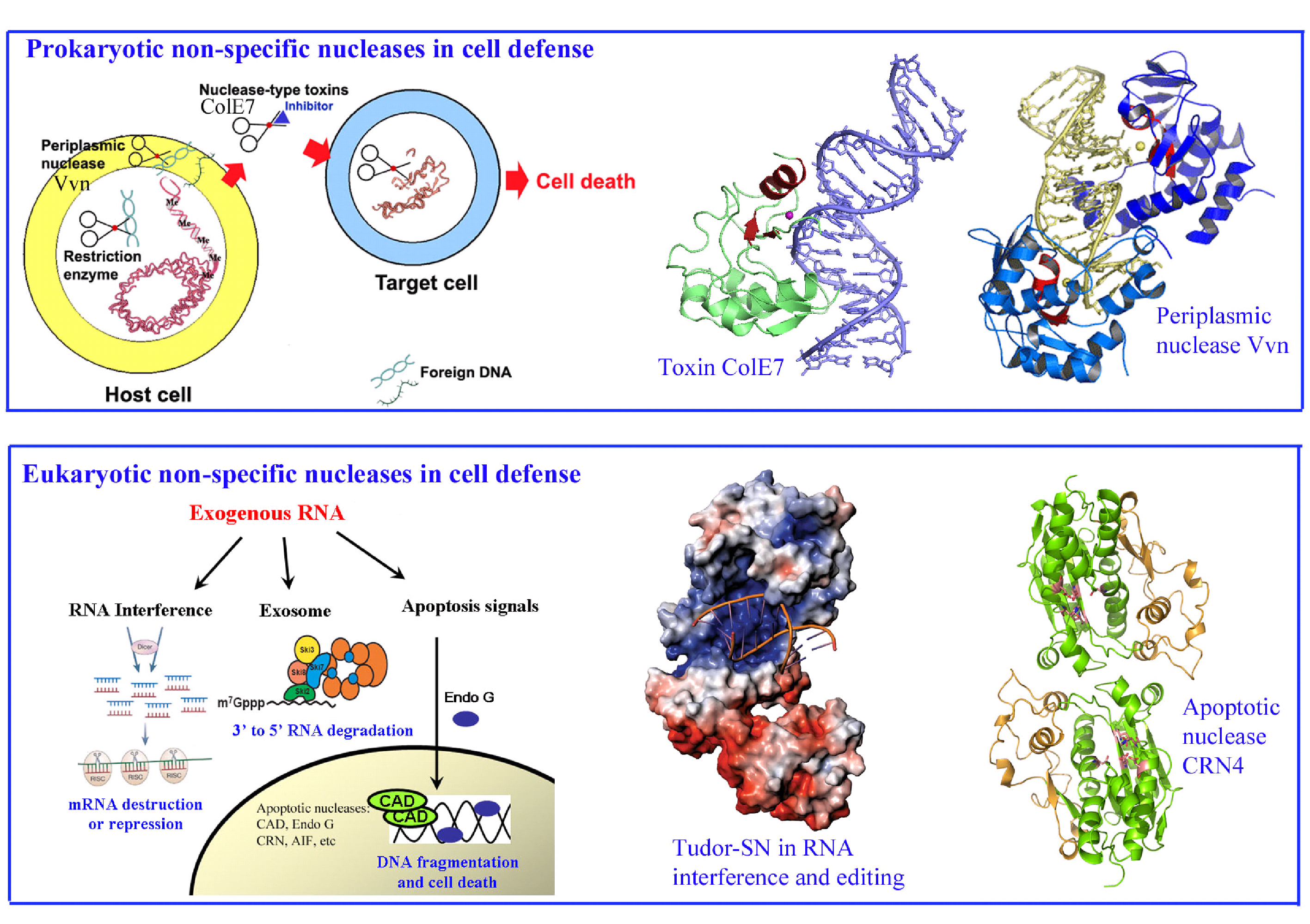Non-specific Nucleases in Cell Defense
|
A variety of non-specific
nucleases are involved in cell defense by degradation of foreign or host
nucleic acid molecules in prokaryotes and eukaryotes. We are interested in
understanding and comparing the ways of how these nucleases are regulated,
how they recognize DNA/RNA, and how they cleave phosphodiester
linkages, using a combination of structural, biochemical and biophysical
approaches. We have been working on two
types of sugar non-specific nucleases in bacteria, including a periplasmic nuclease Vvn and a
secreted toxin ColE7, both of which digest foreign nucleic acids for cell
defense. Based on our structural and biochemical analysis on Vvn and ColE7, we have provided a solid foundation to
explain how these nucleases are inhibited and activated, how they recognize
DNA without sequence specificity and how they digest DNA to protect bacterial
cells at atomic level. We also extend our investigation
to the eukaryotic non-specific nucleases involved in cell defense. Specific
projects include structural and functional studies of non-specific nucleases
participating in chromosome fragmentation in apoptosis, and a number of RNases involved in mRNA degradation and miRNA biogenesis. For example, we determined the crystal
structure of a cell-death-related nuclease (CRN4), suggesting how this
protein binds and cleaves DNA in program cell death. Our structural and
biochemical analysis on human Tudor-SN suggests how this protein captures
hyper-edited miRNA and plays a role in RNA editing
and interference. The long-term goal of this research is to establish
molecular bases for how nucleases digest DNA/RNA to assert their roles in
promoting or suppressing cell survival machinery. |
|
|
